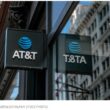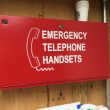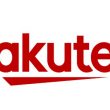LightSquared claims GPS tests improper
LightSquared representatives yesterday challenged tests that indicated the satellite provider’s proposed LTE network would cause harmful interference to GPS systems, claiming the process did not attempt to validate previous tests and was tainted by the presence of GPS companies.
Last week, nine federal departments and agencies that have been conducting test on LightSquared’s proposed LTE network sent a letter to the National Telecommunications and Information Administration (NTIA) stating that the satellite provider’s proposed terrestrial LTE network would cause harmful interference to GPS systems.
“There appear to be no practical solutions or mitigations that would permit the LightSquared broadband service, as proposed, to operate in the next few months — or years — without significantly interfering with GPS,” the letter states.
LightSquared is seeking another round of tests conducted by an independent laboratory that will be more open to outside scrutiny than previous tests, according to Jeff Carlisle, LightSquared’s executive vice president for regulatory affairs and public policy.
“What we’re looking for is a fair process that results in actual, scientifically valid and reliable results,” Carlisle said during a conference call with reporters. “We don’t have that today … the NTIA asked for the validating testing to be done. It wasn’t done properly, and so what we’ve asked them to do is have it done properly.”
Specifically, LightSquared officials said the GPS devices tested were not representative of the existing market and that the threshold for failure — 1 dB of difference — was too low, because the testing was controlled by the GPS industry.
“What needs to be done is valid testing,” Ed Thomas, a LightSquared consultant and former FCC chief engineer, said during a press conference. “If I were teaching a college engineering laboratory course and this was submitted as a project, I’d give it an F-minus. … It was a classic example of the college student in the laboratory drawing the curve in before he made the measurements.”
Thomas also said that the tactics are not unprecedented.
“When I was a chief engineer at the FCC, we were introducing ultrawideband,” Thomas said. “The GPS community did exactly what’s going on here. They misrepresented everything; I was accused in the press of causing airplanes to crash and on and on.
“[The] religion in the GPS community is, ‘You don’t do anything next to me.’ Now, I don’t know the reasons, but … you can go back and pull the clippings, and you can see it was very ugly.”
Carlisle reiterated that LightSquared has had the legal authority to operate a terrestrial cellular network using its licensed satellite spectrum since 2005. Meanwhile, the potential interference issues are the result of some GPS — an unlicensed use — equipment having receivers that accept signals outside of the GPS band, including LightSquared’s spectrum.
“It’s the spectrum that we’re licensed to,” Carlisle said. “So, the issue here is that, if you have somebody who’s licensed to use their spectrum, and you have an unlicensed user that is effectively squatting on your spectrum, they don’t have rights to protection. That’s a defensible legal right, as far as we’re concerned.”
But news of the federal agencies’ letter to NTIA caused many industry observers to question whether the political environment will allow LightSquared to get FCC approval for its nationwide LTE wholesale service.
“I think it’s a politically difficult position for LightSquared,” said Ken Rehbehn, a principal analyst with Yankee Group. “They’re attempting to make an argument that there are ways to get around the problem, but it puts the onus — in large part — on the owners of equipment is using the GPS signals to upgrade their equipment.
“When you start touching upon matters of public welfare and safety, it’s hard to fight that and to beat that.”
Mobile wireless consultant Andrew Seybold echoed this sentiment.
“From my perspective, the stuff that came out earlier this week really puts LightSquared out of business,” he said.
Even if LightSquared eventually is able to secure approval to build an LTE network using its satellite spectrum, both Rehbehn and Seybold expressed concern about the company’s financial state. Media reports have indicated that LightSquared needs to raise capital during the second quarter — an extremely difficult task, if the company does not have clearance to proceed with its LTE plans — but LightSquared officials repeated stated that the company has enough funding to survive for “several quarters,” although they declined to be more specific.
Related:

















